
AGE UK urges every older person to protect their health by having a winter COVID-19 and flu jab as soon as they can.
With the roll out of the 2024 winter flu and covid vaccination programme underway, Age UK urges older people to do all they can to stay well this winter by having the vaccinations for which they are eligible as soon as they can.
By having a vaccine those most at risk from respiratory illnesses can be protected through the colder months, preventing nasty winter bugs from developing into more serious illnesses and helping to minimise hospitalisations [i].
Studies show that older people and particularly those managing health conditions are among those most at risk from the serious impacts of flu, COVID-19 and respiratory virus.
The UKHSA weekly flu and covid surveillance reports show those aged 85+ had the highest hospital admission rate for influenza between December 2023 and May 2024. This was followed by those aged 75-84 who had the second highest rate. [ii]
The weekly rates of hospital admissions for older people with RSV has risen sharply since October 2024, leaping from 0.3 per 100,000 patients on October 14, to 2.92 on November 25 for the 65-74 age group. For the 75-84 age group, those figures have risen from 0.5 to 5.95 per 100,000 patients (almost 12 times as many) during the same period. For those 85+, the admission rate for RSV has risen from 1.27 to 14.05 (over 11 times as many) during the same period [iii].
Despite the risks across eligible groups, influenza vaccine uptake in the UK has generally lower during the 2024 to 2025 season, compared to the previous 2023 to 2024 season among the 65+ age group. However, estimates show the effectiveness of the influenza vaccine against hospitalisation was 30% in those aged 65 and above [iv], making it a vital tool in protecting ourselves against serious winter illnesses.
For the first time, the NHS is also offering vaccines for respiratory syncytial virus (RSV), a common cause of coughs and colds which can be dangerous to older people. The jab, introduced earlier this month, is being made available to all adults turning 75 on or after 1 September. In the first year of the programme, there will also be a one-off catch-up campaign for adults already aged 75-79 years old on 31 August 2024 [v].
Influenza and Covid vaccines will be available and are considered safe to have at the same time, but the RSV vaccine will be offered on a different day to the others.
Caroline Abrahams, Charity Director at Age UK said: “This winter is shaping up to be another worrying one for many older people as they struggle to balance keeping warm this winter with the cost of energy, changes in eligibility for the Winter Fuel Payment, and the rising cost of food. But having our vaccines when they are offered is something we can all do to help avoid serious illnesses, particularly as the weather turns cold. There are also other preventative steps that older people can take to help keep them healthier this time of year too, including proactively managing long-term conditions, keeping as warm as they can, eating well, and washing hands regularly, so they have the best chance of staying fit and well for as long as possible.
“If you're eligible for a vaccine we would urge you to do everything you can to protect your health and take up the opportunity when it is offered. I am certainly doing so and I hope you will too”.
For some older people RSV may cause symptoms that are much like a cold, but this respiratory virus can also lead to more serious infections such as bronchiolitis or pneumonia. We understand that those who are not eligible at the moment may be frustrated to be missing out. However, this particular age range has been selected as there isn’t yet enough evidence on the vaccine’s effectiveness in the older age groups. Hopefully, eligibility may be extended in the future, depending on the outcome of this initial vaccine roll out.
For the RSV vaccine, you will be contacted by your GP to make an appointment, whereas for the winter COVID and flu vaccine, you can book on the NHS website, through the NHS App, or by calling 119 for free, you may also be contacted by your GP practice.


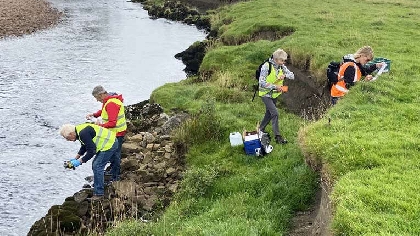 Donation helps pollution group with monitoring river
Donation helps pollution group with monitoring river
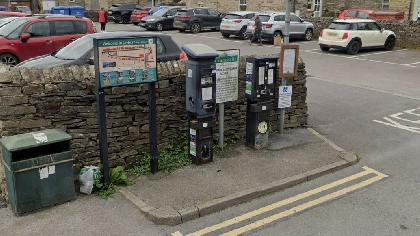 Council chiefs agree record £2.5m investment in car parks
Council chiefs agree record £2.5m investment in car parks
 Summer bus services in the Dales extended
Summer bus services in the Dales extended
 Dales pub landlady loses enforcement notice appeal
Dales pub landlady loses enforcement notice appeal
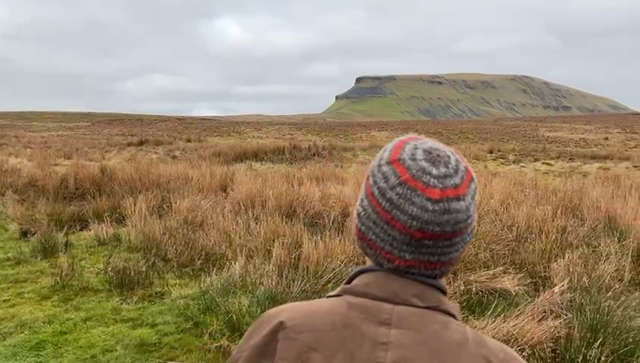 Ex-National Park head and son pay tribute to Pennine Way in song
Ex-National Park head and son pay tribute to Pennine Way in song
 A PRESSING engagement at Gallery on the Green
A PRESSING engagement at Gallery on the Green
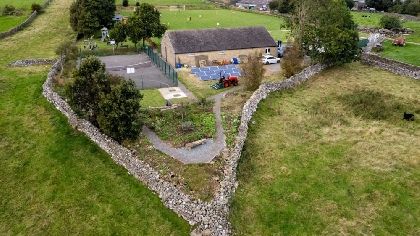 Dales pavilion featured in TV advert becomes thriving hub
Dales pavilion featured in TV advert becomes thriving hub
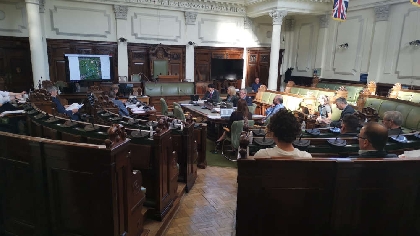 Planners refuse Richmond housing development
Planners refuse Richmond housing development
Comments
Add a comment